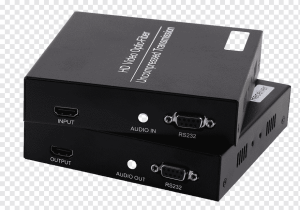Purchasing the right networking equipment is crucial for establishing a reliable and efficient network, whether for personal use or within a business environment. In the UK, the market offers a diverse range of products catering to various needs and budgets. This comprehensive guide will walk you through the essential steps and considerations to ensure you make an informed decision when buying networking equipment.
Understanding Your Networking Needs
Before diving into the vast array of available products, it’s essential to assess your specific networking requirements. Consider the following aspects:
Purpose of the Network
- Home Use: For browsing, streaming, and light gaming.
- Business Use: Handling multiple devices, large data transfers, and secure communications.
- Gaming: Low latency and high-speed connections.
- Content Creation: High bandwidth for uploading and downloading large files.
Scale of the Network
- Number of Devices: Determines the capacity and type of equipment needed.
- Coverage Area: Influences the selection of routers and access points to ensure adequate signal strength.

Types of Networking Equipment
Understanding the different types of networking equipment is fundamental to building a robust network.
Routers
Routers are the backbone of any network, directing data between your local network and the internet.
- Wireless Routers: Offer Wi-Fi connectivity for multiple devices.
- Wired Routers: Provide stable connections through Ethernet ports.
- Dual-Band and Tri-Band Routers: Enhance performance by operating on multiple frequency bands.
Switches
Network switch connect multiple devices within a local network, facilitating communication between them.
- Unmanaged Switches: Simple plug-and-play devices suitable for basic networking needs.
- Managed Switches: Offer advanced features like traffic management and network monitoring, ideal for businesses.
Modems
Modems bridge the gap between your local network and your Internet Service Provider (ISP).
- Cable Modems: Compatible with cable internet services.
- DSL Modems: Suitable for DSL internet connections.
- Fiber Modems: Designed for high-speed fiber optic connections.
Access Points
Access points extend the coverage of your wireless network, ensuring strong signals in all areas.
- Standalone Access Points: Independent devices that can be strategically placed around your space.
- Mesh Access Points: Work in tandem to create a seamless and extensive wireless network.
Cables and Connectors
Quality cables and connectors are essential for ensuring stable and fast wired connections.
- Ethernet Cables (Cat5e, Cat6, Cat6a, Cat7): Varying speeds and shielding for different networking needs.
- Fiber Optic Cables: Offer superior speed and bandwidth for high-performance networks.

Choosing the Right Equipment
Selecting the appropriate equipment involves evaluating your current and future needs, ensuring scalability and compatibility.
Compatibility
Ensure that all components are compatible with each other and with your ISP’s services. Check for standardized ports and protocols.
Speed and Performance
Match the equipment’s speed capabilities with your internet plan and usage requirements. For high-bandwidth activities like gaming or streaming, opt for higher-speed routers and switches.
Security Features
Prioritize equipment with robust security features to protect your network from threats. Look for:
- Built-in Firewalls
- Advanced Encryption Standards (WPA3)
- Guest Network Options
Brand Reputation
Choose reputable brands known for quality and reliability, such as Cisco, Netgear, TP-Link, and Asus.
Budget
Balance your needs with your budget. While high-end equipment offers superior performance, there are cost-effective options that provide adequate functionality for standard uses.
Where to Buy Networking Equipment in the UK
Several avenues are available for purchasing networking equipment, each with its advantages.
Online Retailers
Platforms like Amazon UK, eBuyer, and Scan.co.uk offer a wide selection, competitive prices, and customer reviews to help inform your decisions.
Local Electronics Stores
Stores such as Currys PC World and Argos provide the advantage of seeing products in person and receiving immediate assistance from sales staff.
Specialized Networking Suppliers
For more advanced or specific needs, specialized suppliers like Dabs or RS Components cater to professional and enterprise-level networking equipment.
Comparing Prices and Deals
To ensure you get the best value, compare prices across different retailers and look out for special deals or discounts. Consider:
- Bulk Purchase Discounts: For businesses needing multiple units.
- Seasonal Sales: Events like Black Friday or Cyber Monday often feature significant discounts.
- Bundled Offers: Packages that include multiple pieces of equipment at a reduced price.
Warranty and Support
Reliable warranty and customer support are vital for addressing any issues that may arise post-purchase.
Warranty Terms
Check the duration and coverage of the warranty. Extended warranties may offer additional peace of mind, especially for high-investment equipment.
Customer Support
Ensure the manufacturer or retailer provides accessible and helpful customer support, including troubleshooting assistance and replacement services.
Installation and Setup
Proper installation is key to maximizing the performance of your networking equipment.
Professional Installation
For complex setups, especially in business environments, hiring a professional ensures optimal configuration and security.
DIY Installation
Many modern devices offer user-friendly installation guides and intuitive interfaces, making it feasible for individuals to set up their networks.
Maintaining Your Networking Equipment
Regular maintenance ensures longevity and sustained performance of your networking equipment.
Firmware Updates
Keep your devices updated with the latest firmware to benefit from performance improvements and security patches.
Physical Care
Protect equipment from dust, overheating, and physical damage by placing them in well-ventilated and secure locations.
Network Monitoring
Use network monitoring tools to keep an eye on performance, identify potential issues, and optimize your network setup.
Conclusion
Buying networking equipment in the UK requires a clear understanding of your needs, thorough research, and careful consideration of various factors such as compatibility, performance, and budget. By following this guide, you can make informed decisions that ensure a robust, secure, and efficient network tailored to your specific requirements. Investing in quality networking equipment not only enhances your connectivity experience but also provides a scalable foundation for future technological advancements.
